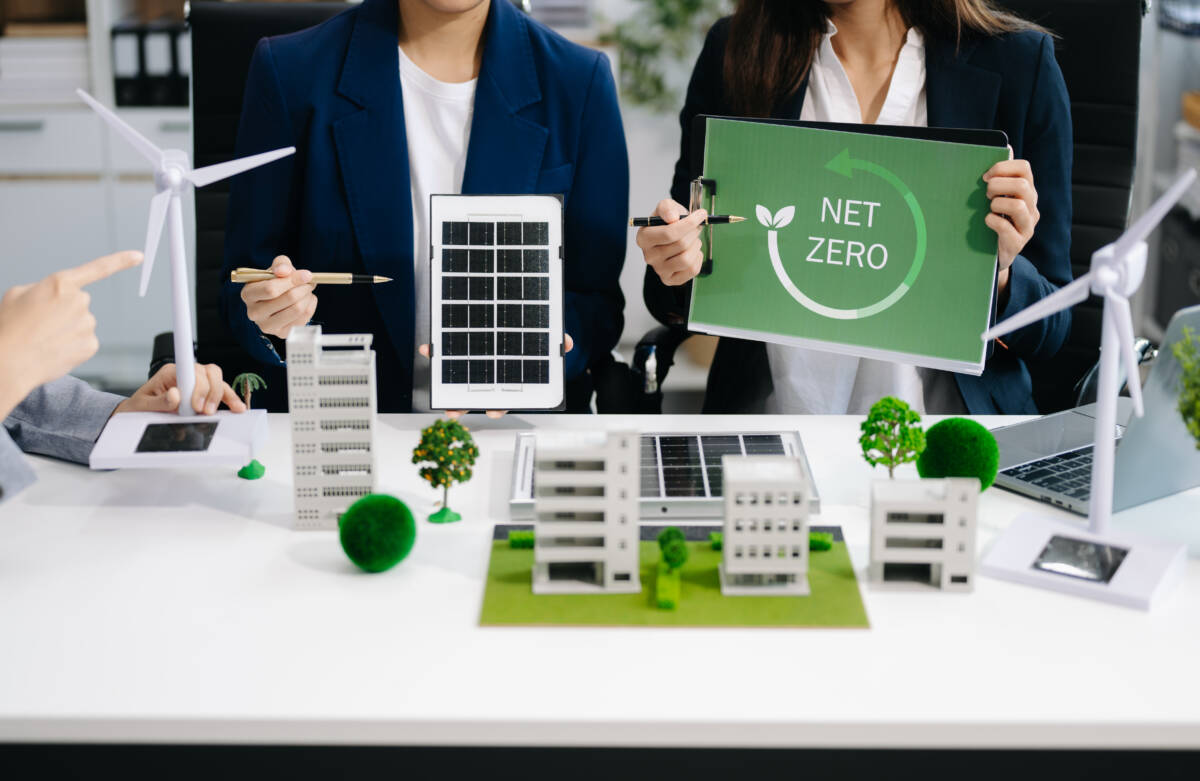Ahead of the COP-30 climate change negotiations in Brazil, we—the people of Indonesia Net-Zero Summit 2025—call on Indonesia to strengthen its strategy and take concrete action to address the climate crisis, while leading global efforts to keep global temperature rise below 1.5°C, as agreed in the Paris Agreement, ratified by Law No. 16 of 2016.
Recently, President Prabowo Subianto declared Indonesia’s commitment to achieving 100% renewable energy within the next 10 years. Last year, he also expressed optimism that Indonesia would achieve net-zero emissions by 2050. This is a positive policy statement and sends a strong signal regarding the direction of Indonesia’s climate policy and energy transition—one that we warmly welcome.
This year, Indonesia will update its climate strategy and commitments for the 2031–2035 period through the Nationally Determined Contribution (NDC) 3.0 document—or, for Indonesia, the Second NDC. In accordance with the Paris Agreement, the NDC is updated every five years, with more ambitious targets than the previous NDC. The NDC reflects the future direction of Indonesia’s national development.
Through the Indonesia Net-Zero Summit 2025, we call on and propose that all levels of the Indonesian government set more ambitious, science-based climate targets aligned with 1.5°C.
Concretely, we encourage the target of achieving net-zero emissions by 2050 and a national emission target of 6% by 2030 and 21% by 2035 below 2019 levels (excluding absorption and/or emissions from the forestry and land use sector [FOLU]). This commitment must be based on the principle of fair share and developed in a transparent and accountable manner. This commitment must also be supported by credible and actionable sectoral planning, appropriate implementation, and improvements to the financial ecosystem that support the decarbonization of all economic sectors. In line with this, international climate assistance, both financial and technical, is essential.
Indonesia has all the assets to lead: a wealth of natural resources worth protecting, vast sources of clean and renewable energy, a strategic position, diplomatic strength, and a demographic bonus of young people eager for change. However, leadership doesn’t come automatically. It must be built on strategic vision and bold decisions.
Amidst a turbulent world—from wars and energy crises to food crises to widespread disinformation—the climate crisis continues to worsen. Unfortunately, the world’s attention is increasingly scattered. We live in an era of great distraction, where commitment to the future is often eclipsed by the frenzy of short-term interests.
However, it is precisely amidst these distractions that we are being tested. Can Indonesia stay focused? Are we bold enough to lead?
No economy grows on Earth without dying. Strong climate targets can be a driving force for inclusive economic growth and promote social justice for all Indonesians. Climate responsibility is not an obstacle to development. On the contrary, it is a 21st-century opportunity and a means to achieving the Vision of a Golden Indonesia 2045.
Data from the 2021 Low Carbon Development Initiative document from the Indonesian National Development Planning Agency (Bappenas RI) states that in the energy sector, a firm commitment and implementation of renewable energy could create nearly 5 million new jobs in the solar energy sector and up to 11 million jobs in the energy sector overall. The world is now entering a clean energy boom, which is expected to reach a value of over USD 2 trillion annually by 2030, according to the International Energy Agency (IEA). Since 2022, global investment in clean energy has surpassed investment in fossil fuels and continues to increase. Furthermore, according to Bappenas RI’s 2021 LCDI data, in the FOLU sector, establishing an ambitious net-zero emission target could generate economic benefits of USD 1.5 trillion by 2045.
According to the Ministry of Finance, Indonesia needs approximately IDR 4,000 trillion to fund climate action. A strong climate commitment in the Second National Development Planning (NDC) will be an important signal that Indonesia is serious and capable, not only of addressing the climate crisis but also of strengthening its economic competitiveness globally. This strong signal of commitment can also attract green investment and future climate financing commitments.
It is time for a just transition to a low-emission, climate-resilient economy to become a key pillar of economic security, food security, energy security, and the creation of millions of green jobs. It is time for the protection and preservation of forests and oceans to be seen not as a burden on development, but as an opportunity and strategic strength for Indonesia on the global stage. And it is time to make climate diplomacy a key anchor of Indonesian foreign policy, not merely as a result of international pressure, but as an implementation of the constitutional mandate of the 1945 Constitution, and an expression of our strategic national interests and global responsibility to current and future generations.
We must also be honest with ourselves: without a paradigm shift, without cross-sectoral policy reform, and without strong political will, Indonesia will not be able to face the pressures and growing impacts of the climate crisis in the coming decades.
Therefore, we propose that net-zero should not only be a government target, but a collective vision for the entire Indonesian nation. Net-zero must become an economic, political, and development agenda, as well as a source of national pride.
Finally, we need climate nationalism—where love for the nation is manifested through protection of the environment and the future of future generations. We are confident and optimistic that Indonesia can be a role model in realizing this needed climate nationalism. Amidst intertwined global crises, our nationalism today is not just about sovereignty, but also about the courage to protect the earth on which we stand and the future of future generations.
Jakarta, July 26, 2025

